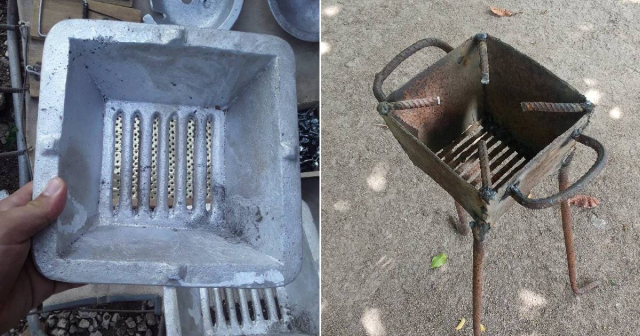The food insecurity that the Cuban population is experiencing is leading the regime to dust off self-sufficiency strategies from 30 years ago, with which it aims to provide some food to those families whose nutritional needs are not met by the rationing policy and the products that the State sells through the supply booklet.
The critical situation has led the authorities in Holguín to revive the "División Mambisa," a contingent of agricultural workers aimed at supplying products to the agromarkets without the need for intermediaries, with the goal of lowering food prices.
The Mambisa Division "aims to enhance food supply as much as possible every weekend," highlighted a report from the National Television News (NTV) this Sunday, which showed images of trucks loaded with produce being escorted by police cars and motorcycles.
"The truth is that the territory needed to better organize what is produced and direct it to markets and fair points without intermediaries," explained the report by official journalist Yordanis Rodríguez Laurencio, acknowledging that among the population "many are questioning how sustainable this strategy will be."
Daniel Cabrera Pupo, an elderly resident of Holguín, stated that "there needs to be a lot of organization, because there are those who set prices without knowing if it is worth that or not, because they are intermediaries."
"Then the intermediary needs to be eliminated. It is something that is not right. Look how good this is today, there are so many things! But that is not always the case. It is necessary for it to be maintained," added Cabrera Pupo.
Leoncio Ariel Guerraro Regalado, another elderly interviewee, considered it essential that the offer of the Mambisa Division be sustained over time. "What is needed is consistency. Consistency and permanence in this, and demand! Fundamental demand, and control, demand and control!" he said.
"It is true that we are going through very difficult times, but the challenge is not to continue seeing as normal what is not right. Coming together for greater production and lowering prices are the priorities today in this eastern region," concluded Rodríguez Laurencio.
As noted by the state media Ahora, the Mambisa Division was a "broad movement of productive feats" designed by Jorge Luis Sierra Cruz in the 1990s, when he was the first secretary of the Provincial Committee of the Party in Holguín.
The leader, who held the position of Minister of Transportation, was removed from his posts due to "errors made in the performance of his duties" and passed away prematurely at the age of 53.
"In recent months, we have been studying and evaluating all the available land for cultivation based on the existing productive poles. In addition to the spring and cold campaigns where we distribute and organize the 21st Century Mambisa Division," said Joel Queipo Ruíz in statements to Ahora this Sunday.
The current first secretary of the Provincial Committee of the Party in Holguín believes that the main objective of the Mambisa Division is to achieve a greater production of food in a short period of time, with an impact on the value of the products.
Once again, voluntarism is present in the economic thinking of Cuban leaders, who are hard to understand. They both advocate for the food production strategy of a leader removed from his position for "errors committed in the performance of his duties" and applaud the 63 measures to enhance food production proposed by Miguel Díaz-Canel.
The regime's propaganda and the creation of Mambisa Divisions clash against the wall of reality that hinders the progress and well-being of Cubans.
Only in September, three news articles published in this medium report on the magnitude of food insecurity in the population.
While the Ministry of Food Industry explained to Cubans that reducing the size and weight of bread was the only way to guarantee the regulated product to the population, the mixed company Industria Molinera de La Habana S.A. (IMSA), with the participation of the Cuban state, proudly showcased its flour production at the 14th Varadero Gourmet International Festival.
Add to that the sad image that recently circulated on social media, in which a group of people was captured on video picking up ground beef from the floor, following an incident at a market in Havana.
The Cuban regime does not unlock productive forces for fear of losing the social control it exercises through a communist economic model with paternalistic social policies. At the same time, it is unable to supply food to the population, stimulate the economy, and stop the spread of poverty. The result of all this is the growing food insecurity.
What do you think?
COMMENTFiled under:
